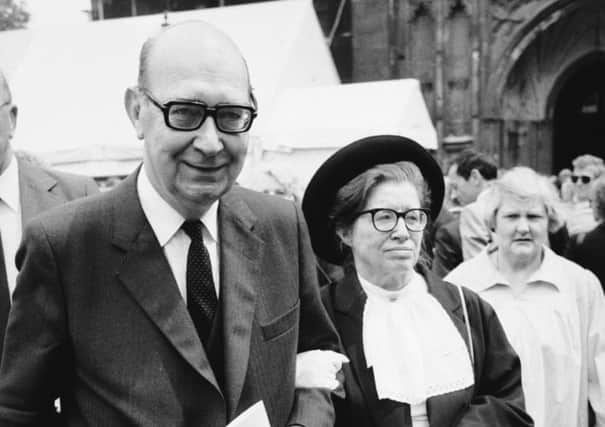Book review: Philip Larkin


Philip Larkin
James Booth
Bloomsbury, £25
It was striking that there were several of Larkin’s lesser known, early poems cited in the recent anthology Poems That Make Grown Men Cry.
His own reputation, however, remains deep in the doldrums into which it sank after the publication of his Selected Letters in 1992 and Andrew Motion’s unsympathetic official biography, A Writer’s Life in 1993. Larkin is now widely viewed not just as racist, misogynist, porn-addicted, devious in love, alcoholic, foul-mouthed and viciously right-wing, but also dreary and twee with it. The publication of his schoolgirl novel Trouble At Willow Gables and a selection of his letters to his long-term girlfriend Monica Jones, often addressing her as a rabbit, hasn’t helped matters.
Advertisement
Hide AdNow here comes James Booth, recently retired from the Department of English at the University of Hull, where he was a colleague of Larkin for 17 years: not so much a biographer as an evangelist for the poet.
Booth has two previous critical studies of Larkin to his name, edited that schoolgirl fiction, and has acted as literary adviser to the Larkin Society and co-editor of its journal, About Larkin. Booth not only has no doubts about Larkin’s greatness as a poet – there, he’s right – but also wants to defend his behaviour as a man on every count, from the racism to diddling his lovers.
It’s a more compromised strategy than just insisting on the achievement of the poetry regardless of any personal failings and it involves Booth in some unconvincing special pleading for his hero. He bafflingly claims, for example, that “his subconscious was not racist” and that Larkin’s prodigious two-timing was OK because “he had to an extent created both women” (sour Monica Jones and sweet Maeve Brennan). He even observes: “It is possible to conclude that Monica and Maeve were taking advantage of Philip, rather than he taking advantage of them.”
So Booth plays down Larkin’s drinking and silently recasts misogyny as mere “misogamy” (hatred of marriage). He finds his porn preferences innocent enough. Larkin’s sympathies were with the left, if he was political at all, he says. At bottom, Larkin was nice, really.
Yet, if he tries too hard with the man, Booth is absolutely excellent on the work. The reshaping of Larkin’s canon in the order in which it was written rather than as it was published is completed here. To read this book through, turning back to the poems in sequence, is to appreciate Larkin’s development more intimately than has been possible before. n